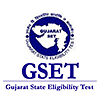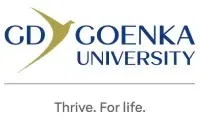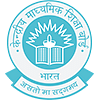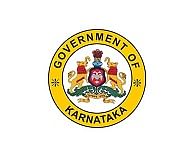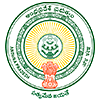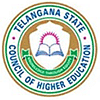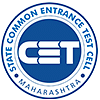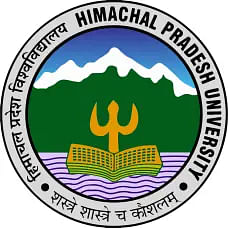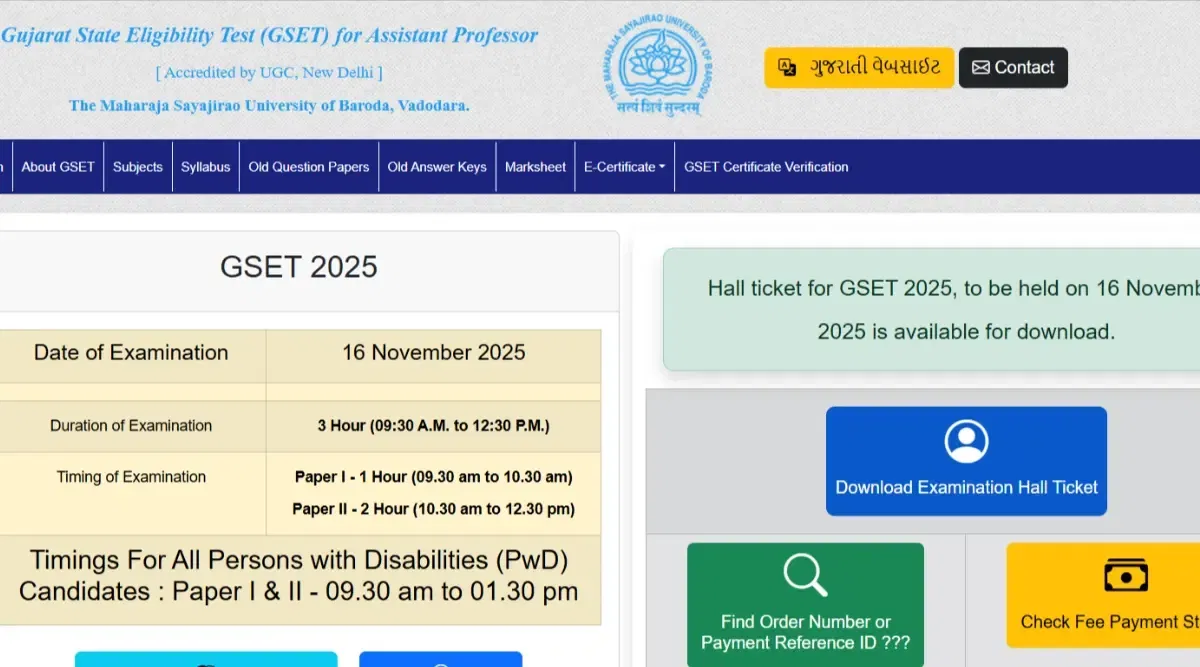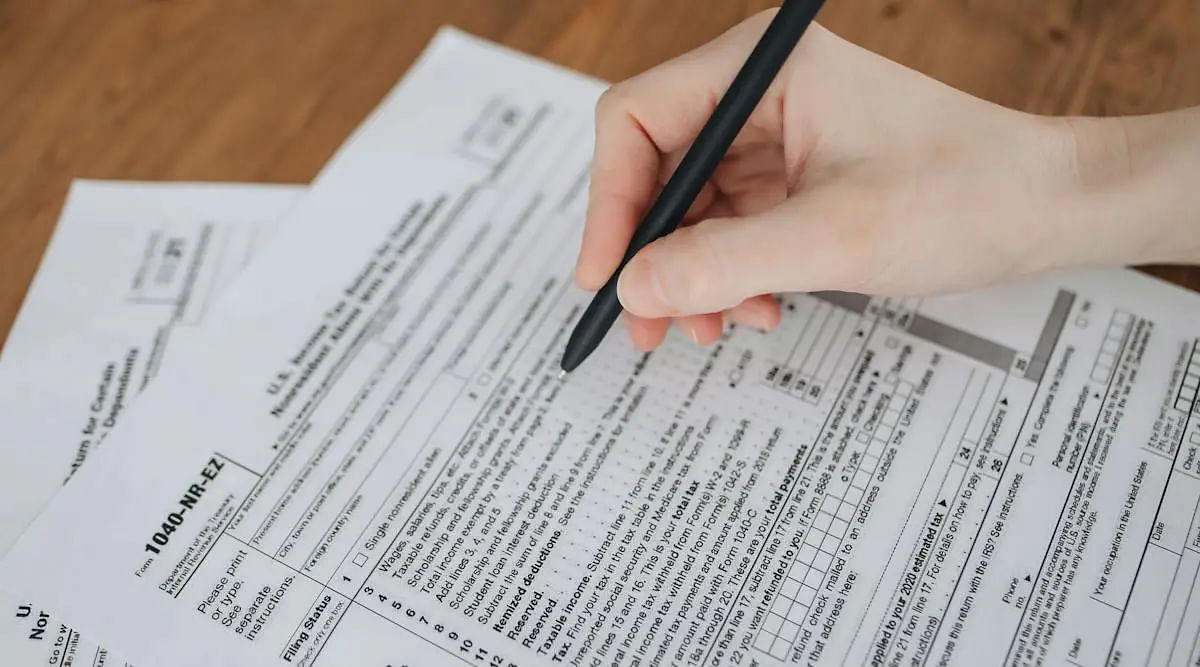
Table of Contents
GSET 2023 notification will soon be released on the official website at gujaratset.ac.in. The candidates will be required to register themselves for the same. The GSET notification 2023 is likely to be out in the coming months.
The candidates must have passed Master's in the relevant subject to be eligible to apply for GSET 2023 application. Further details on the same are listed below for the candidate's reference. The commission will announce the GSET Exam Date 2023 along with the official notification.
The scorecard for the exam will be made available with the announcement of the GSET result 2023, and applicants who score more than the qualifying marks given by Maharaja Sayajirao University of Baroda, Vadodara would be eligible for the Assistant Professor position.
About GSET Exam
About GSET Exam: The GSET exam is an eligibility entrance test which is conducted to select aspiring and qualified candidates for the post of Assistant Professor in colleges across Gujarat. The Gujarat State Eligibility Test (GSET) Agency, The Maharaja Sayajirao University of Baroda, Vadodara is the conducting authority of GSET exam. It is recognized by the UGC, New Delhi.GSET is a state-level online examination held once a year.
Previously UGC has recommended the Government to conduct a separate eligibility test to select Assistant Professors apart from having the minimum educational qualification. So until 1989, UGC was responsible for conducting a National Eligibility Test (NET) to select potential candidates for Assistant Professor recruitment. This exam was common for colleges all over India. After that, UGC asked the state governments and Union Territories to conduct their own eligibility tests.
As a part of that recommendation, the Gujarat Government is conducting the GSET exam to select qualified candidates for the recruitment of Assistant Professor/Lecturer in colleges across Gujarat.
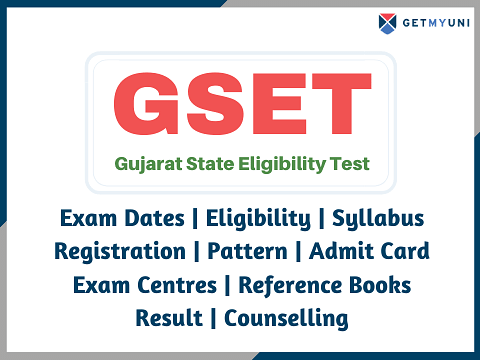
GSET Exam Highlights
All the important facts related to the GSET exam are tabulated below.
| GSET Exam Highlights | |
| Exam Name | GSET |
| Full Form | Gujarat State Eligibility Test |
| Level of exam | State-level |
| Exam Type | State Eligibility Test |
| Frequency | Annual |
| Conducting Authority | Maharaja Sayajirao University of Baroda, Vadodara |
| Mode of Application | Online |
| Age Limit | No upper age limit |
| GSET Official Website | www.gujaratset.in |
GSET Application Form
GSET 2023 exam application process and fee payment window will commence soon. Candidates will be able to fill out the online application form and pay for the GSET exam on the official website. The last date for the application registration and fee payment will be notified soon.
Before filling out the registration form, each candidate must ensure his or her eligibility by checking the GSET 2023 eligibility criteria as prescribed by the conducting authority. The application process for the GSET 2023 exam starts with the payment of the application fee and ends by completing the registration of the candidate.
The GSET application process is given below. Candidates can follow the steps given below to apply for the GSET 2023 exam.
Step 1 - Pay Examination Fee
- Candidate has to first visit the official website of GSET - www.gujaratset.ac.in for fee payment. The examination fee and processing charges including the Goods and Services Tax (GST) can be paid only through online mode by Debit Card/ Credit Card/ Net Banking or UPI.
- Candidates need to follow the on-screen instructions for payment of the requisite GSET 2023 fee and must print the examination fee receipt generated after the successful transaction.
- Candidates must note down and preserve the order number and SBI epay Reference ID for online registration of their GSET 2023 application form.
Step 2 - Register Online for GSET Examination
- Before applying online for the GSET 2023 exam, the candidates must possess a scanned passport-size coloured photograph in JPG format. The file size should not exceed 100 KB.
- Candidate needs to visit the GSET website again and provide the order number and SBI epay Reference ID to log in to his/ her profile for filling up the GSET 2023 application form by clicking the "Apply Online" link available under the candidate’s login profile.
- Candidates must fill in the information carefully in the online application form and follow the on-screen instructions for filling up the application form. Provide all your basic details such as name, subject, centre, category, physical or visual disability, correspondence address, mobile number, email ID and educational details such as year of passing, graduation from college and CGPA/percentage obtained etc.
- Review the entire details before submitting the application form as no correction can be made after you submit the application form.
- After successful submission and confirmation, the candidate must take a printout of the duly filled online GSET 2023 application form. The candidate must keep and preserve the printout of the application form for future reference.
GSET Application fee
The application fee for all the categories applying for the GSET 2023 exam is given below.
| Candidate Category | Fee Amount |
|---|---|
| General/Gen–EWS/SEBC (Non-creamy layer) Candidates | INR 900 |
| SC/ST/Transgender Candidates | INR 700 |
| PWD (PH/VH) Candidates | INR 100 |
Important Points
- Candidates can download the application form take a printout and save it for future reference. Also if in case the scanned photo is not printed properly on the admit card. You can send the scanned passport-size photo along with the registration details to gujaratset@gmail.com.
- The list of accepted applicants will be available on the G SET official website after 10 days of the last date of registration.
- Candidates can refer to it and in case find any kind of mismatches they can contact the authorities by mail (the email ID is as mentioned above).
- After the GSET results, if a candidate is declared qualified, he or she must take a print of the online application form and submit it with the hall ticket and fee payment receipt. It must be submitted to the Gujarat State Eligibility test office, Vadodara at the time of document verification.
GSET Eligibility Criteria
GSET exam eligibility criteria for GSET generally comprises age, minimum educcompriseualification, domicile criterion and the relaxation exercised for the candidates under the reserved category. Candidates must check the GSET exam eligibility criteria before registering for the GSET 2023 exam.
Age Limit
There is no upper age limit set for candidates aspiring to take up the GSET 2023 exam.
Domicile Criterion
The GSET exams are primarily for the candidates of Gujarat. The candidates who belong to other states can also apply but those under reserved categories will not be granted any reservation. Apart from the candidates of Gujarat, all others will be treated as General Category.
Educational Qualification
Those candidates who have completed their Master's Degree are eligible to take this exam. The subject taken in the Master's Programme must be recognized by UGC.
If in case, the subject chosen by the candidate is not in the list provided by UGC for GSET, then such an aspirant must attempt UGC NET / UGC – CSIR NET examination which is held two times in any given year.
The aspirants having any of the following degrees must get approval from the Association of Indian Universities (AIU), New Delhi.
- Post Graduate diploma/certificate awarded by Indian University/Institute (or)
- Foreign degree/diploma/certificate awarded by the Foreign University / Institute
These candidates after qualifying the SET will be required to submit equivalence certificate from AIU after the GSET result.
Aspirants belonging to the General or General-EWS category and have secured at least 55% marks (without rounding off) in a Master's Degree or an equivalent exam from a UGC recognized University or Institution will be eligible for GSET exam. They are expected to hold a Master's Degree in any of the following streams
- Sciences
- Humanities (including languages) and Social Science
- Computer Science & Applications
Candidates belonging to the any of the below-mentioned categories must score at least 50% marks (without rounding off) in Master's Degree to attempt GSET exam.
- Socially and Educationally Backward Class (SEBC) belonging to the Non-Creamy Layer
- Scheduled Caste (SC) / Scheduled Tribe (ST)
- PwD (PH - Physically Handicapped / VH - Visually Handicapped)
- Transgender category.
Such candidates must complete their Master’s degree examination within two years from the date of declaration of GSET Result with the minimum percentage of marks.
Candidates who are PhD degree holders and whose Master’s level examination had been completed by 19th September 1991 (irrespective of the date of declaration of result) will be eligible for a relaxation of 5% in aggregate marks (i.e., from 55% to 50%) for appearing in the GSET Examination.
Reservation Policy
Transgender candidates belonging to the General or General-EWS will be eligible for the same relaxation given to SC/ST/PwD(PH/VH) category students. They will enjoy relaxation in fee, age and in the qualifying criteria for GSET Exam.
Also, the subject-wise cut-offs for this category will be the lowest among those for SC/ST/PwD(PH/VH)/SEBC – NCL in the corresponding subjects.
Candidates belonging to these reserved categories must have valid documents to get the relaxation benefits.
Important Note!!!
If at any stage it is found out that the candidate has not qualified the above-mentioned criteria, then he or she will be rejected and will not be allowed to face further proceedings.
GSET Exam Pattern
Candidates aspiring for the GSET 2023 exam should know about the content structure and pattern of the exam to score better. There are two papers in the GSET exam and each paper will only have Multiple Choice Questions (MCQ). The GSET 2023 is an offline exam and candidates have to attend the test in OMR (Optical Mark Reader).
Marking Scheme: Each question in paper 1 and paper 2 will fetch +2 marks for the correct response. There are no negative marks in both the paper. The total duration of the GSET 2023 is 3 hours (09:30 AM to 12:30 PM). 20 minutes extra time shall be provided for Paper 1 and 40 minutes for Paper 2 separately for Physically Handicapped candidates. The exam scheme or paper pattern is displayed below.
Language of the paper: The questions in the paper will be in Gujarati and English languages (except for Science and Language subjects).
| Paper | Total Number of Questions | Marks per question | Total Marks |
|---|---|---|---|
| I | 50 | 2 | 100 |
| II | 100 | 2 | 200 |
| Total | 150 | 300 |
The questions in Paper I is meant to assess the teaching and research aptitude of the candidate. Questions will be predominantly based on topics like reasoning ability, comprehension, divergent thinking and general awareness of the candidate.
Paper-II will have questions based on a particular subject. The subject can be chosen by the student or the candidate.
GSET Syllabus
The syllabus and the subjects given below are as per the official website information. So students can bank upon the information given below and kick-start their preparation for GSET 2023 exam.
| Subject Code | Name of the Subject | Question Paper Medium | P. G. Course | Subjects in PG Course |
|---|---|---|---|---|
| 01 | Mathematical Sciences | English |
M.Sc./M.A./M.Tech. (Science) |
Mathematics / Mathematical Science / Statistics / Applied Mathematics/ Industrial Mathematics |
| 02 | Physical Sciences | English |
M.Sc. |
Physics / Physical Science |
| 03 | Chemical Sciences | English |
M.Sc. |
Chemistry / Chemical Science |
| 04 | Life Sciences | English |
M.Sc./M.Tech (Science) |
Life Science / Botany / Zoology / Microbiology / Biotechnology / Biochemistry / Virology / Bioinformatics / Genetics |
| 05 | Hindi | Hindi |
M.A. |
Hindi |
| 06 | Gujarati | Gujarati |
M.A. |
Gujarati |
| 07 | Sanskrit | Sanskrit |
M.A. |
Sanskrit |
| 08 | History | English & Gujarati |
M.A. |
History |
| 09 | Sociology | English & Gujarati |
M.A. |
Sociology |
| 10 | Economics | English & Gujarati |
M.A. |
Economics |
| 11 | Political Science | English & Gujarati |
M.A. |
Political Science / Politics |
| 12 | English | English |
M.A. |
English |
| 13 | Education | English & Gujarati |
M. Ed. / M. A. |
Education |
| 14 | Psychology | English & Gujarati |
M.A. |
Psychology |
| 15 | Library and Information Sciences | English & Gujarati |
M. Lib./ M. Lis. |
Library and Information Science |
| 16 | Law | English & Gujarati |
LL. M. |
Law |
| 17 | Commerce | English & Gujarati |
M. Com. |
Commerce |
| 18 | Management | English |
M. B. A. |
Management |
| 19 | Computer Science and Applications | English |
M.C.A / M.Sc. M.C.S / M.E. / M. Tech or Equivalent Degree |
Computer Science and Application |
| 20 | Earth Sciences | English |
M.Sc. |
Geology / Geoinformatics |
| 21 | Physical Education | English & Gujarati |
M. P. Ed. |
Physical Education |
| 23 | Home Science | English & Gujarati |
M.Sc. / M.A. |
Home Science |
| 25 | Social Work | English & Gujarati |
M.S.W/ M.A. |
Social Work |
A more elaborate and detailed version of the topics in each subject as prescribed in the GSET Syllabus is provided on the official website. The detailed syllabus of GSET 2023 exam is given below:
Syllabus for Mathematical Sciences
- Analysis- Elementary set theory, finite, countable and uncountable sets, Real number system as a complete ordered field, supremum, infimum, archimedean property, Metric spaces, connectedness. Normed Linear Spaces, Functions of several variables, directional derivative, partial derivative, derivative as a linear transformation, inverse and implicit function theorems. etc.
- Linear Algebra- Vector spaces, linear dependence, basis, dimension, algebra of linear transformations, subspaces, Eigenvalues and eigenvectors, Algebra of matrices, rank and determinant of matrices, reduction and classification of quadratic forms, etc.
- Complex Analysis: The complex plane, polynomials, power series, Algebra of complex numbers, transcendental functions such as exponential, trigonometric and hyperbolic functions, Analytic functions, Conformal mappings, Mobius transformations, Taylor series, Laurent series, calculus of residues, etc.
- Algebra- Combinations, pigeon-hole principle, inclusion-exclusion principle, Permutations,
- derangements, Fundamental theorem of arithmetic, divisibility in Z, congruences, Chinese Remainder Theorem, Euler’s Ø- function, primitive roots, Polynomial rings and irreducibility criteria, etc.
- Topology: basis, dense sets, connectedness and compactness, subspace and product topology, separation axioms.
- Ordinary Differential Equations (ODEs)- Existence and uniqueness of solutions of initial value problems for first-order ordinary differential equations, singular solutions of first-order ODEs, a system of first-order ODEs, General theory of homogeneous and non-homogeneous linear ODEs, a variation of parameters, Sturm-Liouville boundary value problem, Green’s function.
- Partial Differential Equations (PDEs): Method of separation of variables for Laplace, Heat and Wave equations, Classification of second-order PDEs, General solution of higher-order PDEs with constant coefficients, etc.
- Numerical Analysis- Numerical solutions of algebraic equations, Rate of convergence, Solution of systems of linear algebraic equations using Gauss elimination and Gauss-Seidel methods, Hermite and spline interpolation.
- Calculus of Variations: Euler-Lagrange equation, Variation of a functional, Necessary and sufficient conditions for extrema. Variational methods for boundary value problems in ordinary and partial differential equations.
- Linear Integral Equations: Characteristic numbers and eigenfunctions, resolvent kernel, Linear integral equation of the first and second kind of Fredholm and Volterra type, Solutions with separable kernels.
- Classical Mechanics: Lagrange’s equations, Generalized coordinates, Hamilton’s canonical equations, Hamilton’s principle and the principle of least action, Euler’s dynamical equations for the motion of a rigid body about an axis, the theory of small oscillations, Two-dimensional motion of rigid bodies.
- Descriptive statistics, exploratory data analysis, Sample space, Bayes theorem, Modes of convergence, Limit theorems (i.i.d. case), Independent random variables, etc.
Syllabus for Physical Sciences
Part A " Core"
- Mathematical Methods of Physics- Dimensional analysis, Linear algebra, matrices, Vector algebra and vector calculus, matrices, Cayley-Hamilton, Central limit theorem, Fourier series, Fourier and Laplace, transforms, etc.
- Classical Mechanics- Newton’s laws, relativistic kinematics and mass-energy equivalence, Non-inertial frames and pseudo forces, Conservation laws and cyclic coordinates, etc.
- Electromagnetic Theory- Electrostatics: Gauss’s law and its applications, Magnetostatics: Biot-Savart law, Ampere's theorem, dary value problems, Magnetostatics: Biot-Savart law, Ampere's theorem, etc.
- Quantum Mechanics- Wave-particle duality, Tunneling through a barrier, Motion in a central potential: orbital angular momentum, etc.
- Thermodynamic and Statistical Physics- Laws of thermodynamics and their consequences, Maxwell relations, Thermodynamic potentials, phase equilibria, etc.
- Electronics and Experimental Methods- Semiconductor devices (diodes, junctions, transistors, field-effect devices, homo- and hetero-junction devices), Operational amplifiers and their applications, etc.
Part B " Advanced"
- Mathematical Methods of Physics- Green’s function, Finite difference methods, Tensors, Elements of computational techniques: the root of functions, interpolation, extrapolation, integration by trapezoidal and Simpson’s rule, etc.
- Classical Mechanics- Dynamical systems, invariance and Noether’s theorem. Hamilton-Jacobi theory, etc.
- Electromagnetic Theory- Dispersion relations in plasma, Transmission lines and waveguides, etc.
- Quantum Mechanics- Relativistic quantum mechanics: Klein-Gordon and Dirac equations, etc.
- Thermodynamic and Statistical Physics- Diamagnetism, paramagnetism, and ferromagnetism. Ising model, etc.
- Electronics and Experimental Methods- Linear and nonlinear curve fitting, chi-square test, amplification (Op-amp based, instrumentation amp, feedback), etc.
- Atomic & Molecular Physics- Quantum states of an electron in an atom, Quantum states of an electron in an atom, etc.
- Condensed Matter Physics- Josephson junctions, Superfluidity, Defects and dislocations, Ordered phases of matter: translational and orientational order, etc.
- Nuclear and Particle Physics- Nature of the nuclear force, a form of nucleon-nucleon potential, charge-independence and charge-symmetry of nuclear forces. Deuteron problem, etc.
Syllabus for Chemical Sciences
- Inorganic Chemistry- Chemical periodicity, Transition elements and coordination compounds: structure, bonding theories, spectral and magnetic properties, reaction mechanisms, etc.
- Physical Chemistry- Basic principles of quantum mechanics, Approximate methods of quantum mechanics, Atomic structure and spectroscopy, Chemical bonding in diatomics, Chemical applications of group theory, Molecular spectroscopy, etc.
- Organic Chemistry- IUPAC nomenclature of organic molecules including regio- and stereoisomers, Principles of stereochemistry, Aromaticity, Chemistry of natural products, Pericyclic reactions, Asymmetric synthesis, etc.
- Interdisciplinary topics- Chemistry in nanoscience and technology, Catalysis and green chemistry, Medicinal chemistry, Supramolecular chemistry, Environmental chemistry.
Syllabus for Life Sciences
- Molecules and their Interaction Relevant to Biology
- Cellular Organization
- Fundamental Processes
- Cell Communication and Cell
- Developmental Biology
- Methods in Biology
- Applied Biology
- Evolution and Behavior
- Ecological Principles
- Diversity of Life Forms
- Inheritance Biology
- System Physiology – Animal
- System Physiology – Plant
Syllabus for Sanskrit
- General Introduction of Vedic Literature: Main theories regarding the Vedās, Saṁhitā Literature, Dialogue Hymns, Brāhamaṇa-Literature, Āraṇyaka Literature, Vedāṅgas.
- Specific Study of Vedic Literature
- Darśana
- Darśana Literature: Special Study- Īśvarakṛṣna, Bādarāyaṇa, Laugākṣibhāskara; Arthasaṁgraha, etc.
- Grammar and Linguistics
- Specific Study of Grammar
- Sanskrit Literature, Poetics and Prosody
Syllabus for History
- Negotiating the Sources: Archaeological sources: Exploration, Excavation, Myths, Legends, etc.
- Pastoralism and Food production
- Indus/Harappa Civilization
- Vedic and later Vedic periods
- Expansion of State system
- From State to Empire: Rise of Magadha
- Dissolution of Empire and Emergence of Regional Powers
- Gupta Vakataka age
- Harsha and his Times
- Salankayanas and Vishnukundins in Andhradesa
- The emergence of Regional Kingdoms
- Kingdoms in Eastern India
- Kingdoms in Western India
- Kingdoms in North India:
- Characteristics of Early Medieval India
- Trade and urbanization
- Growth of Brahmanical religions
- Education and Educational Institutions
- Source of Medieval Indian History
- Administration & Economy
- Society and Culture
- Sources of Modern Indian History
- Colonial Economy
- Rise of Indian Nationalism
- Historical Method, Research, Methodology and Historiography
Syllabus for Sociology
- Classical Sociological Traditions
- Structural- Functionalism and Structuralism
- Hermeneutic and Interpretive Traditions
- Postmodernism, Post Structuralism and Post Colonialism
- Indian Thinkers
- Conceptualizing Social Reality
- Formulating Research Design
- Quantitative and Qualitative Methods
- Techniques
- Sociological Concepts
- Social Institutions
- Social Stratification
- Social Change and Processes
- Rural and Peasant Society
- Urban Society
- Political Processes in India
- Social Movements and Protests
- Economy and Society
- Environment and Society
- Family, Marriage and Kinship
- Science, Technology and Society
- Culture and Symbolic Transformations
Syllabus for Economics
- Micro Economics
- Macro Economics
- Statistics and Econometrics
- Mathematical Economics
- International Economics
- Public Economics
- Money & Banking
- Growth and Development of Economics
- Environmental Economics and Demography
- Indian Economy
Syllabus for Political Science
- Political Theory
- Political Thought
- Indian Political Thought
- Comparative Political Analysis
- International Relations
- India’s Foreign Policy
- Political Institutions in India
- Political Processes in India
- Public Administration
- Governance and Public Policy in India
Syllabus for Psychology
- Emergence of Psychology
- Research Methodology and Statistics
- Psychological testing
- The biological basis of behaviour
- Attention, Perception, Learning, Memory and Forgetting
- Thinking, Intelligence and Creativity
- Personality, Motivation, emotion, stress, and coping
- Social Psychology
- Human Development and Interventions
- Emerging Areas
Syllabus for English
- Drama
- Poetry
- Fiction, Short story
- Non-Fictional Prose
- Language: Basic concepts, theories, and pedagogy. English in Use.
- English in India: history, evolution, and futures
- Cultural Studies
- Literary Criticism
- Literary Theory post World War II
- Research Methods and Materials in English
Syllabus for Library and Information Science
- Data, Information, Knowledge and Wisdom
- Historical Development of Libraries in India; Committees and Commissions on Libraries in India.
- Information Sources - Nature, Characteristics, Types and Formats.
- Community Information Services
- The universe of Knowledge - Nature and Attributes; Modes of Formation of Subjects.
- Management - Principles, Functions and Schools of thought
- Computer Technology
- Library Automation
- Research - Concept, Purpose, Functions, Scope and Ethics; Types of Research – Basic and Applied, Interdisciplinary and Multidisciplinary.
- Academic Library and Information System
Syllabus for Law
- Jurisprudence
- Constitutional & Administrative Law
- Public International Law & IHL
- Law of Crimes
- Law of Torts & Consumer Protection
- Commercial Law
- Family Law
- Environment & Human Rights Law
- Intellectual Property Rights & Information Technology Law
- Comparative Public Law & Systems of Governance
Syllabus for Commerce
- Business Environment and International Business
- Accounting and Auditing
- Income-tax and Corporate Tax Planning
- Legal Aspects of Business
- Business Finance
- Business Economics
- Business Management and Human Resource Management
- Business Statistics and Research Methods
- Banking and Financial Institutions
- Marketing Management
Syllabus for Management
- Management
- Functions
- Communication
- Decision Making
- Managerial Economics
- Value-Based Organisation
- Group Behaviour
- Emotions and Stress Management
- Job Analysis, Job Evaluation, and Compensation Management
- Strategic Role of Human Resource Management
- Employee Engagement & Work-Life Balance
- Career Planning and Development
- Trade Union & Collective Bargaining
- Accounting Principles and Standards
- Leverages
- Capital Structure
- Financial Management, Concept & Functions
- Value & Returns
Syllabus for Computer Science & Applications
- Discrete Structures and Optimization
- Computer System Architecture
- Programming Languages and Computer Graphics
- Database Management Systems
- System Software and Operating System
- Software Engineering
- Data Structures and Algorithms
- Theory of Computation and Compilers
- Data Communication and Computer Networks
- Artificial Intelligence (AI)
Syllabus for Earth Science
- Earth, Atmospheric, Ocean & Planetary Sciences
- Mineralogy & Petrology
- Structural Geology & Geotectonics
- Palaeontology & Its Applications
- Sedimentology & Stratigraphy
- Geochemistry
- Geomorphology
- Climatology
- Signal Processing
- Numerical analysis and inversion
- Physical Meteorology
- Atmospheric Electricity
- Cloud Physics
- Chemical Oceanography
Syllabus for Physical Education
- Teaching Aptitude
- Recreation
- Physical education and adapted physical education
- Social aspects of sports
- Muscle
- Neuro
- Biochemical aspects of exercise
- Mechanical analyses of major sports skills
- Linear and angular kinematics and kinetics
- Management- its principles and theories
Syllabus for Home Science
- Food Science & Food Service Management
- Nutrition & Dietetics
- Textiles
- Apparel Designing
- Resource Management & Consumer Issues
- Housing & Interior Design
- Child/Human Development
- Family Studies
- Communication for Development
- Extension Management & Community Development
Syllabus for Social Work
- Nature and Development of Social Work
- Areas of Social Work Practice
- Research in Social Work
- Social Work with Individuals and Groups
- Indian Constitution, Social Justice, Human Rights, and Social Work Practice
GSET Exam Dates
GSET 2023 exam will be conducted in two shifts. Paper 1 will be held from 9:30 AM to 10:30 AM, while paper 2 exam will be conducted from 10:30 AM to 12:30 PM. The hall ticket for the same will be released a week before the exam. Candidates must have a clear idea about the GSET exam events and their respective dates.
| Events | Dates |
|---|---|
| Notification Release Date | To Be Notified |
| Online Registration Start Date | To Be Notified |
| Last date of filling the GSET application | To Be Notified |
| GSET 2023 Admit Card Release Date | To Be Notified |
| GSET 2023 Result Date | To Be Notified |
| GSET Final Answer key Release Date 2023 | To Be Notified |
| GSET Answer key Release Date 2023 | To Be Notified |
| GSET Answer key Objection Date 2023 | To Be Notified |
| GSET Answer Key 2023 | To Be Notified |
| GSET Exam 2023 | To Be Notified |
GSET Hall Ticket
GSET 2023 hall ticket will be released a week prior to the exam date on the official website at gujaratset.in. Candidate should be aware that GSET hall ticket 2023 will not be sent by post. So candidates have to log in to the official website by entering the required credentials such as the order number and transaction ID to download their hall ticket.
Missing Photograph: If the hall ticket of GSET does not display your photo, you have to paste the photo at the appropriate place. No candidate will be allowed to enter the exam hall without the GSET 2023 admit card.
All candidates must carry the hall ticket along with a photo ID to the exam hall. It can be either be the following documents
- Driving License
- Voter ID
- College/university identity card
- PAN card
- Aadhar card
- Passport
Steps to Download GSET Admit Card 2023
Candidates can follow the steps mentioned below to download GSET 2023 admit card.
- Step 1: Candidates must visit the official website at gujaratset.ac.in.
- Step 2: Click on "Download Examination Hall Ticket" option on the homepage.
- Step 3: Candidates must enter their login credentials such as the order number and transaction ID.
- Step 4: Check the fee payment status and download the GSET 2023 hall ticket.
| Direct Link to Download GSET 2023 Hall Ticket | Available Here |
Important Note: The presence of a valid admit card or a filled and accepted application form will not ensure your eligibility for the recruitment process of Assistant Professor or Lecturer post. You have to perform in the GSET exam to be eligible for admission.
GSET Exam Centres
The admit card generally holds all the information about the exam centre. GSET agency might change the date of the exam or the exam centre without assigning the reason.
Candidates have to arrive at the exam hall at least 60 minutes before the commencement of the test. All candidates are expected to co-operate with the exam invigilators or authorities during the frisking process.
Note: The conducting authority will not take any responsibility for the loss of any of the valuable things belonging to the candidates. Downloading the admit card, locating the exam centre and finding the allotted seat must be done only by the candidate. GSET agency will not take responsibility for these activities. Candidates must not bring any of their belongings inside the exam centre. There would be no place to hold the belongings of the candidate.
| Centre Code | Centre Name |
|---|---|
| 01 | Vadodara |
| 02 | Ahmedabad |
| 03 | Rajkot |
| 04 | Surat |
| 05 | Patan |
| 06 | Bhavnagar |
| 07 | Vallabh Vidyanagar |
| 08 | Godhra |
| 09 | Junagadh |
| 10 | Valsad |
| 11 | Bhuj |
GSET Exam Answer Key
After the exam, a provisional answer key will be released on the official website. Candidates can view the answer key and cross-check it with their answers to get an idea about the possible score. Candidates can check their response and if they find any question which can be marked right, they can challenge the conducting authority. The query will be addressed in front of a team of experts and they will evaluate the answer and come to a conclusion.
For raising the challenge, the candidate will have to pay INR 1000 per question. They have to send the challenge to the address given below. Payment must be in the form of a Demand Draft.
The Maharaja Sayajirao University of Baroda, B - Block, Chameli Baug, Nr. University Guest House, Prof. C. C. Mehta Road, Vadodara - 390 002
Candidates must send the challenge with a supporting reference from a standard book or literature along with the DD in favour of the "Member Secretary, GSET" payable at Vadodara. The payment along with the challenge must be done within the stipulated time frame.
Note: After a candidate sends the challenge, the student cannot claim anything even if the response doesn't turn out to be positive. The result declared by the GSET agency and their decision will be final.
GSET Result
GSET 2023 result will be declared on the official website. Candidates must keep the online application form with them after the declaration of GSET 2023 results. Because it will be useful during the recruitment process.
How to View the GSET Result?
Follow the steps mentioned below to check GSET result 2023.
- Step 1: Candidates have to visit the official website: gujaratset.in
- Step 2: Click on the result link available on the screen.
- Step 3: Log in by entering the credentials such as order number and eazypay transaction ID.
- Step 4: The result will be displayed on the screen.
- Step 5: View the result and download it.
- Step 6: Take a printout for further usage.
GSET Procedure and Criteria for Declaration of Result
- Step I: The number of candidates to be qualified (total slots) for Eligibility for Assistant Professor shall be equal to 6% of the candidates appeared in both the papers of GSET.
- Step II: The total slots shall be allocated to different categories as per the reservation policy of Government of Gujarat.
- Step III: In order to be considered eligible for Assistant Professor, the candidate must have appeared in both the papers and secured at least 40% aggregate marks in both the papers taken together for General (Unreserved) category candidates and at least 35% aggregate marks in both the papers taken together for all candidates belonging to the reserved categories viz., SC, ST, SEBC (belonging to Non-Creamy Layer), PWD (PH/VH) and Transgender.
- Step IV: The number of candidates to be declared qualified in any subject for a particular category is derived as per the following methodology illustrated below:
|
Number of candidates to be declared qualified for Eligibility for Assistant Professor in the subject ‘Economics’ (say) for the Scheduled Caste (SC) category |
[Number of candidates belonging to SC category who secure at least 35% aggregate marks in both the papers taken together for SC category for ‘Economics’] * [Total slots derived for SC category as per Step II] / [Total number of candidates belonging to SC category over all subjects who secure at least 35% aggregate marks in both the papers taken together.] |
NOTE 1: Similar allocation procedure is used for all subjects and categories.
NOTE 2: It may be noted that the above qualifying criteria is final and binding.
Only based on the GSET result candidates would be deemed eligible for the designation of Assistant Professor or Lecturer, post recruitment.
Contact Details
In case of any queries related to the GSET 2023 exam, candidates can contact at the given details
Gujarat State Eligibility Test (GSET)
Address: The Maharaja Sayajirao University of Baroda
B – Block, Chameli Baug, Nr. University Guest House,
Prof. C. C. Mehta Road, Pratapgunj, Vadodara – 390002
Email ID – gujaratset@gmail.com
Websites: www.gujaratset.ac.in, www.gujaratset.in
FAQs on GSET
Q: Is there an age limit to apply for the GSET?
Q: Who can apply for GSET?
Q: What is the exam pattern for the GSET?
Q: What is the application fee for GSET?
Q: Where is the application form available? Is it available in offline mode?
Q: What is the language of the conduction of GSET?
Q: What are the modes of payment for the GSET application?
